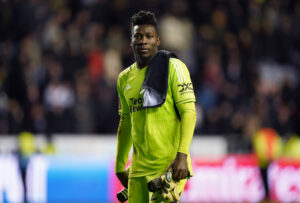Charity begins at home, but not for London’s ‘Super’ clubs. Last week Arsenal, Chelsea, and Tottenham Hotspur announced a series of pre-season friendlies, raising money for mental health as part of the MIND series.
It should have been cause for celebration, recognising their fantastic work and welcoming back full stadiums, but the reality varies greatly from the grand announcements.
MIND Series: Premier League Trio Taking Advantage
Pre-Season Friendlies
Friendlies tend not to garner much interest. At best, they’re a chance to identify some promising young talent. Latent tacticians can garner a glimpse at new tactical set-ups, particularly if a new manager has just arrived.
But the most cynical take would view them as corporate marketing ploys. Knackered players are paraded around foreign lands in search of new ‘fans’ to flog merchandise. In many cases this comes at the cost of dismissing ethical or human rights concerns about the host countries.
This summer feels different. After more than a year of empty stadiums, we have the chance to jump headfirst once again into normality, side by side with fellow supporters. So what if it’s a glorified youth side taking on Colchester United on a Wednesday night? Football, as we know it, is back.
London’s ‘Super’ Clubs Involved in MIND Series
In the case of Chelsea, Arsenal and Tottenham, there’s even greater reason for good tides. The MIND series will raise money for the charity and the clubs’ foundations, as well as immeasurable public recognition.
MIND is a fantastic organisation that carry out extremely important mental health work. They are a very pertinent choice given the circumstances of the past 16 months.
Lockdown and restrictions have had detrimental impacts on the nation’s mental health. 60 per cent of the population saw a deterioration, whilst many will have sadly lost their lives.
There is no competition in comparative misery, no stakes in outranking others’ suffering. But match-going football fans, those who live and breathe the gameday experience, will have so sorely missed what these matches offer.
The weekly coming together of thousands, shoulder to shoulder, cheek by jowl, singing in unions, was taken away by the government for over a year. When free association and human interaction were outlawed, of course that takes its toll.
What We’ve Missed
So it’s magnificent that the first opportunity fans will have to return to these stadiums will also give back. It should help so many going through such mentally challenging times, and the good people of MIND deserve to have their efforts acknowledged.
Such a charitable collaboration is also a welcome break with the über-greed of the modern game. Just months after the financially driven Super League debacle that these clubs sold their souls to, to witness them harnessing their resources and large followings for positive social good is a welcome change.
This by no means approaches anything near rectification. Charitable tie ups should be a moral prerequisite for clubs that receive millions from around the world and profess to be at the heart of their communities. Nonetheless, it symbols a step in the right direction.
But like all symbols, the true facts of the matter can be obfuscated behind the imagery. Buried at the bottom of the press release was the following fine print:
*£5 from each ticket sold will support charitable projects, with Mind receiving 25 per cent of proceeds from each of the three matches in the Mind Series and with each club’s Foundation receiving 75 per cent of proceeds from that club Foundation’s respective home match.
Ticket prices start at £20. In other words, at least 75 per cent of the money from these ‘charity’ games will go straight into the clubs’ coffers. This excludes the premium paid for pricier seats, and doesn’t cover food and drink or programmes.
MIND Series Matters
Of course, any money is better than no money. The awareness raised for MIND and the foundations will do a world of good. But for clubs to use charity to sell tickets with the aim of profit-making screams of moral duplicity.
Obviously, stadiums cost money to run. But they don’t cost £750,000 for a single match (a conservative estimate of post-donation ticket profits for Tottenham). A greater proportion could have been diverted to the charitable organisation lending its name to the games without negatively impacting club finances.
Naturally, after more than a season behind closed doors, clubs are desperate for any revenue. But there’s a time and a place. If it were a pure money-making exercise, clubs could’ve leveraged their first proper matchday back, come up with a ‘London Cup’ pre-season concept and kept even more money.
This is hardly surprising, or indeed new for football. The traditional season curtain-raiser cannot legally be called the Charity Shield. Clubs and football organisations take too much money out of the event for it to be meaningfully philanthropic. Hence the clunky and ambiguous ‘Community Shield’ moniker.
But it still grates. We should expect more of our clubs, and the powerlessness fans feel over the direction they take compounds the problem. Using the goodwill and recognition of charity to monetise otherwise meaningless matches – that’s not very super.
Main Photo






